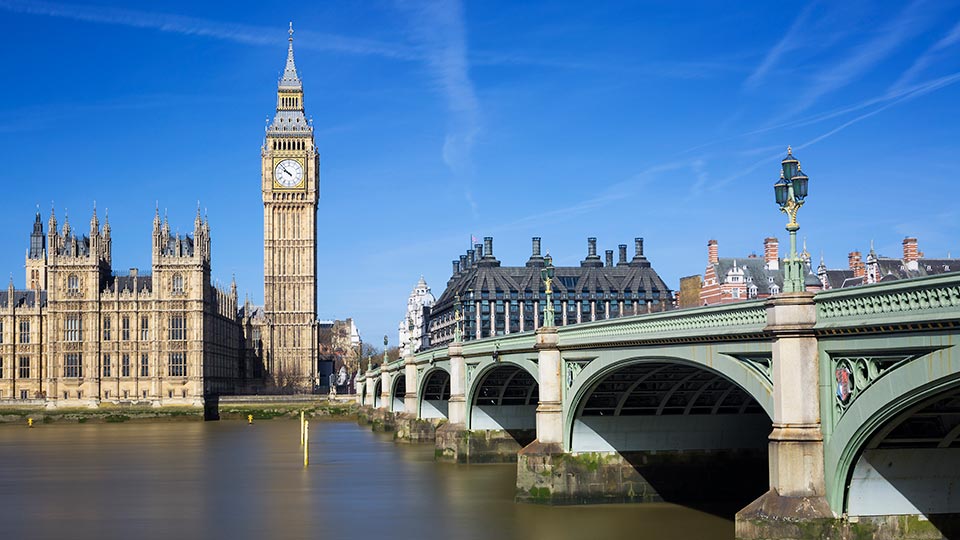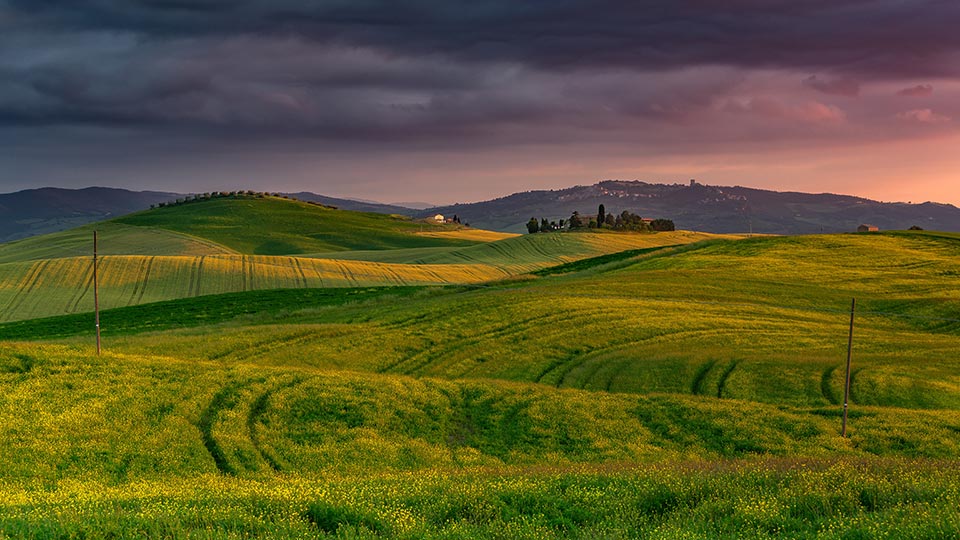Elections, war and geopolitics – what will this mean for financial markets? – election series part one

Could 2024 go down in the history books as the year of democracy? Over 40% of the world’s population is eligible to vote in an election – that’s more than four billion people.1 There will be national elections in the UK, the EU, the US, India, Russia, Pakistan, Mexico and South Africa to name just a few. A truly global array of people will be going to the polls, shaping our world into the future. Join us in a look at the key elections and events around the world.

UK politics
With hints that the General Election is most likely to be in the autumn,2 there is only a short window for the Conservatives to win back voters. Currently sitting with a twenty percentage-point deficit in the polls and floundering leader popularity (Rishi Sunak has a 60% disapproval rating) it is looking like a challenge.3
The healthier the economy the more likely they are to succeed in this attempt – and this will potentially lead to tax and spending measures to create a short-term boost. However, the news that the UK has dipped back into recession will be a major blow for the Conservatives.4 Yet with inflation unexpectedly holding at 4%,5 maybe it is time for the Prime Minister to enact his pledge that “once inflation is under control, we will cut taxes”.6
Meanwhile, Sir Keir Starmer and Shadow Chancellor of the Exchequer Rachel Reeves seek to position Labour as more fiscally responsible. Their promise is to drive growth that fuels investment in public services such as the NHS. Reeves advocates ‘Securonomics’, a pro-business approach which would focus on, “Prioritising economic strength and resilience in the face of our uncertain world.”7
The Economic Observatory reports that despite recession, there is good news too. Workers are finally seeing their real incomes grow, inflation is on a downward trend and likely to fall to, or below, the Bank of England’s target of 2% a year in the coming months and the economy will probably grow in 2024.8
European parliamentary elections
The European elections take place in June this year. Many predict there will be wins for the far right in Austria, Belgium, Croatia and Finland, following Geert Wilders dramatic electoral success in the Netherlands last year.9 However, commentators warn against expecting dramatic shifts, suggesting that the next European Commission will reflect a similar pro-European centre-right, social democratic and green majority that supports current European leaders.10
Paolo Gentiloni, European Commissioner for Economy, states that the economy will “gradually pick up pace on the back of slower price rises, growing real wages and a remarkably strong labour market. Investment is expected to hold up, buoyed by easing credit conditions and the flow of Recovery and Resilience Facility funding.11
Is it really democracy?
Whilst on paper, this year’s plethora of elections looks like a massive win for democracy, there are notable exceptions. Some elections will be neither free nor fair.
In Russia, President Vladimir Putin is likely to win, given his tight grip on Russia’s political system. Many opposition figures have been imprisoned or exiled.12 We’ve just heard about the death of vociferous Putin critic, Alexei Navalny, in an Arctic Circle jail.13
Pakistan held elections on February 8th, amidst allegations of vote rigging. In a surprise victory, allies of imprisoned Imran Khan won most votes, but violent protests about the process ensued.14 Now, a former prime minister of Pakistan is likely to resume the premiership as part of a coalition. Meanwhile, elections in Rwanda, Belarus, Iran, Tunisia and Bangladesh are problematic, with practises such as imprisoning opponents and running sham elections delivering majorities of more than 90%.15
In the US, President Biden has warned voters that “Democracy is on the ballot,”16 stating that Donald Trump is trying to undermine the US system of government. However, with Trump ahead in many opinion polls, it seems that plenty of voters may not care.17
Global conflict and the fight for peace in the Middle East
The shockwaves from Gaza have spread out across the Middle East as conflicts continue with devastating loss of life, humanitarian crisis and no end to hostilities in sight.18
Ukraine and Russia fight on, with drone strikes and the recent news that Ukraine has said Russian forces are using satellite internet service in occupied areas.19
What is the impact on financial markets?
Uncertainty is known to create investor caution, and there is no doubt that elections, conflict, change and questionable democracy all create a great deal of political uncertainty.20
Wars and conflict result in challenge for the global economy, affecting trade and causing food and fuel shortages and exacerbating inflationary pressures.21 For example, disruption in the Red Sea has further contributed to rising costs of global freight.22
The impact of elections is possibly more surprising and positive. The uncertainty hypothesis would lead you to expect that the stock markets would fall prior to an election and then bounce back with the new certainty after. However, historically, this doesn’t hold true.
Research analysing 33 countries (including the US and UK) found that there were in fact “strong positive abnormal returns” in the two weeks leading up to the elections.23 It’s also the case that often, other events are more significant to markets than election results.
Paul Dennis, our Investment Director explains, “Elections mean everything and nothing. We can make predictions, but ultimately, we don’t always know the outcome or the impact on markets. For example, Trump was actually pretty good for markets and investment returns and the Russian stock market is now higher than it was at the start of the invasion. Our perceptions can be influenced by our own personal biases and viewpoints.”
One thing is for sure though, the desire to win votes can lead to policy shifts and changes that impact markets.
Our approach
As we come to the end of this global summary – where only so much can be said in one article – it is worth taking a moment to acknowledge the exceptional scale of change and challenge that society has weathered over recent years.
We’ll conclude with a few words from Paul Dennis on the balanced and enduring Holden & Partners’ approach to investment, abridged in six points.
- Do not take wild bets on outcomes and stay as unemotional as possible.
- Leave your political beliefs out of the decision-making process.
- Stay informed and read as broadly as possible around issues that affect the investment landscape, and make timely and informed decisions throughout.
- Ensure we are backed by sound research – whilst understanding its limitations.
- Aim to be as measured as possible – that means building portfolios that are diversified and not taking huge factor exposure one way or another.
- Believe in the power of humanity! Despite harrowing headlines, so many people strive every day for the greater good
Overall, despite the sense of uncertainty caused by potential change, democratic elections are a healthy part of thriving economies. Taking the long view is what will matter for financial markets, and that will reach beyond short-term policies or campaign pledges.
Read part two of our election series focused on the sustainable agenda here.
1. https://theconversation.com/more-than-4-billion-people-are-eligible-to-vote-in-an-election-in-2024-is-this-democracys-biggest-test-220837
2. https://www.bbc.co.uk/news/uk-politics-67883242
3. https://www.politico.eu/europe-poll-of-polls/united-kingdom/
4. https://www.standard.co.uk/news/uk/uk-economy-recession-jeremy-hunt-rishi-sunak-b1139257.html
5. https://www.bbc.co.uk/news/live/business-68290851
6. https://www.reuters.com/world/uk/uks-sunak-promises-tax-cuts-once-inflation-tamed-2023-10-04/
7. https://labour.org.uk/updates/press-releases/rachel-reeves-securonomics/
8. https://www.economicsobservatory.com/what-is-the-state-of-the-uk-economy-in-early-2024#:~:text=The%20good%20news%20is%20that,That%20said%2C%20many%20challenges%20remain.
9. https://www.bbc.co.uk/news/world-europe-67504272
10. https://blogs.lse.ac.uk/europpblog/2023/12/18/elections-in-2024-make-it-the-year-of-living-dangerously/
11. https://economy-finance.ec.europa.eu/economic-forecast-and-surveys/economic-forecasts/winter-2024-economic-forecast-delayed-rebound-growth-amid-faster-easing-inflation_en#boxes
12. https://www.cbc.ca/news/world/russia-election-nadezhdin-1.7108633
13. https://www.bbc.co.uk/news/world-europe-68315943
14. https://edition.cnn.com/2024/02/09/asia/pakistan-election-nawaz-sharif-intl/index.html
15. freedomhouse.org/sites/default/files/2023-03/FIW_World_2023_DigtalPDF.pdf
16. https://www.theguardian.com/us-news/2024/jan/05/biden-attacks-trump-january-6-anniversary-speech-election
17. President: general election : 2024 Polls | FiveThirtyEight
18. https://www.nytimes.com/2024/02/12/world/middleeast/rafah-bombing-hostage-rescue-gaza.html
19. https://www.theguardian.com/world/2024/feb/12/russia-ukraine-war-at-a-glance-what-we-know-on-day-719
20. Black, F. (1976) Studies of Stock Price Volatility Changes. In Proceedings of the 1976 Meeting of the Business and Economic Statistics Section, American Statistical Association, Washington DC, 177-181. – References – Scientific Research Publishing (scirp.org)
21. https://www.imf.org/en/Publications/fandd/issues/2022/03/the-long-lasting-economic-shock-of-war#:~:text=But%20the%20war%20also%20greatly,deglobalization%2C%20and%20worsening%20environmental%20degradation.
22. https://www.theguardian.com/business/2024/feb/01/uk-manufacturers-hit-by-red-sea-disruption-and-rising-shipping-costs
23. Political elections and the resolution of uncertainty: The international evidence – ScienceDirect






